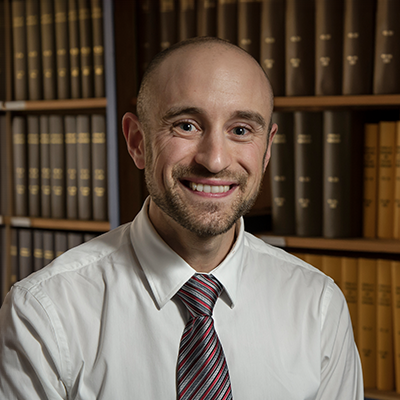
Dr. Jordan Guenette
Researcher, Pulmonary Rehabilitation
Dr. Guenette began his research career studying elite endurance athletes and how their bodies handled the stress of their training. Over time he became increasingly interested in chronic respiratory conditions. Today, Dr. Guenette is Assistant Professor at the Department of Physical Therapy at UBC. Dr. Guenette received his BHK (2004), MSc (2006) and PhD (2010) in Exercise and Respiratory Physiology in the School of Kinesiology at UBC. He received additional research training at the Copenhagen Muscle Research Centre (University of Copenhagen) and in the Department of Critical Care Medicine and Pulmonary Services (University of Athens). Dr. Guenette is a BC Lung Association research grant recipient.
Dr. Guenette's current research relates to how exercise can improve quality of life in patients living with chronic respiratory conditions.
How do you hope to help improve lung patient lives?
My research relates to how exercise can improve quality of life in patients living with chronic respiratory conditions. I'm trying to understand the cause for exercise intolerance, and once we establish those causes, to establish more effective interventions that encourage patients to exercise, even if at first they feel too weak. While I am chiefly focused on non-pharmacological interventions, e.g. exercise, I also do some studies looking at the effects of different types of drugs. I give patients at different stages of disease inhalers, for example, to see how those drugs reduce their shortness of breath and improve their exercise capacity.
Why is exercise so important for patients with chronic lung conditions?
One of the biggest challenges for people with chronic lung disease experience is shortness of breath. This of course makes exercise difficult and so logically patients avoid activities which provoke shortness of breath, which includes exercising. The problem is they become weak. Their muscles and heart becomes weak, and they basically become de-conditioned. The more de-conditioned or out of shape they become, the more short of breath they are, and the less able they are to do things. This dramatically impacts patient quality of life.
I want to help patients avoid a downward spiral. By strengthening their muscles and their heart, they can use oxygen more effectively during exercise and they don’t have to breathe as much to perform a given physical task. And if they’re not breathing as much, they don’t have as much shortness of breath. It is critical we continue to investigate ways improve lung patients exercise capacity and ability to engage in daily activities. Exercise has repeatedly been shown to improve quality of life and to enhance a patient’s ability to control their condition.